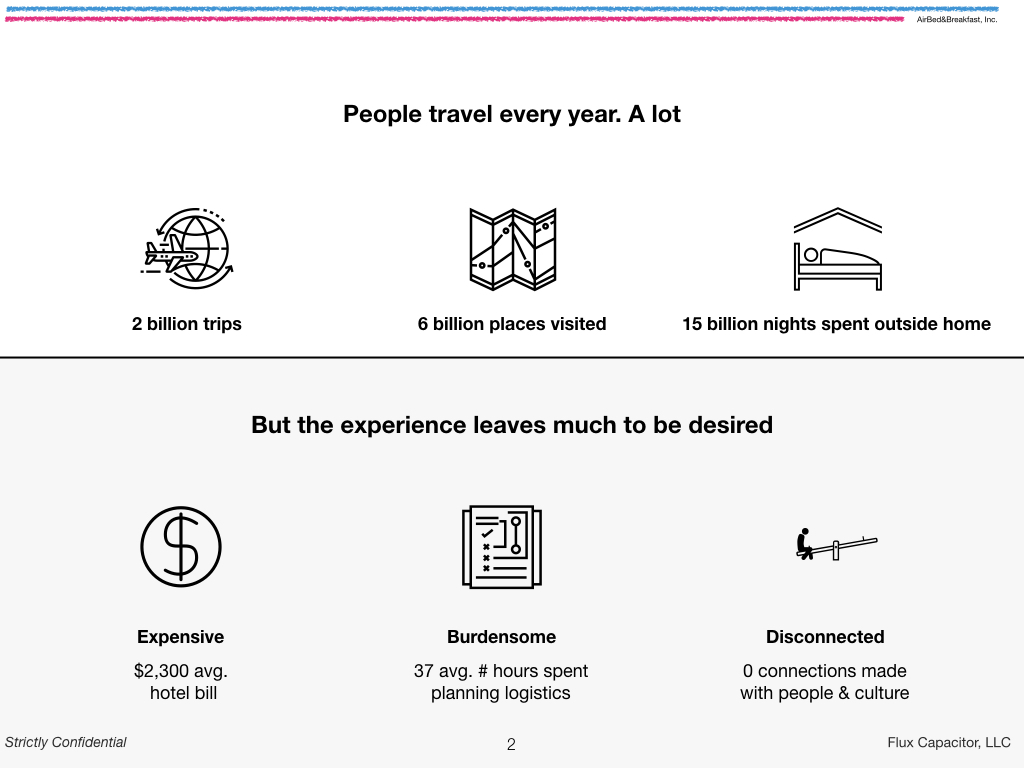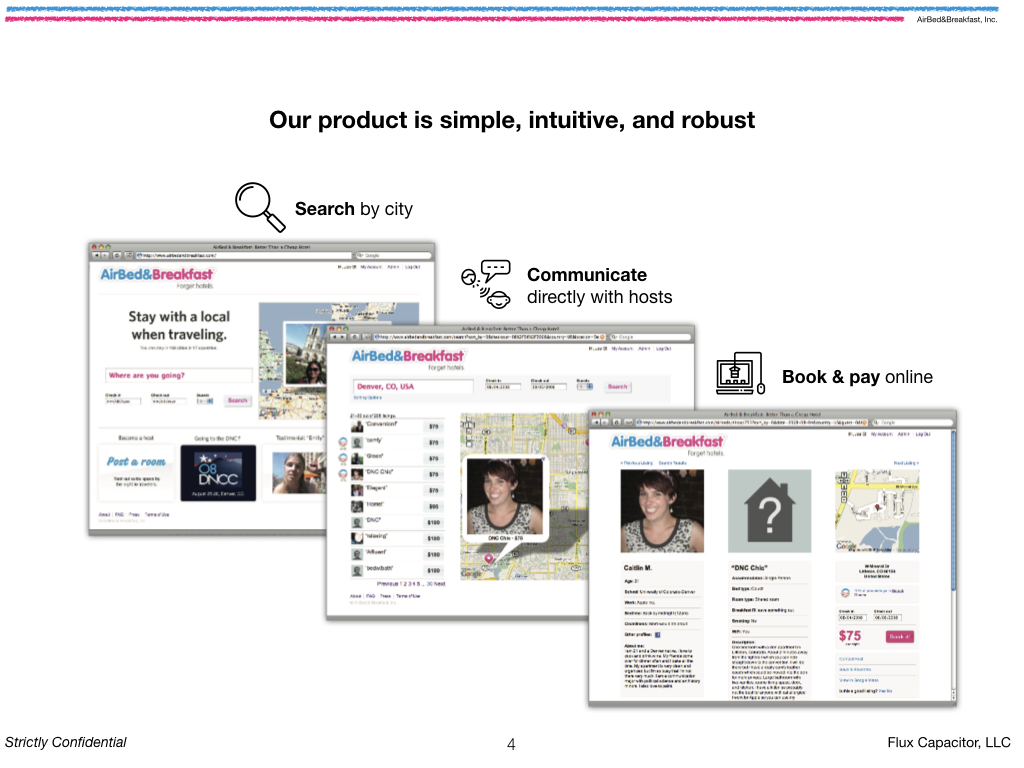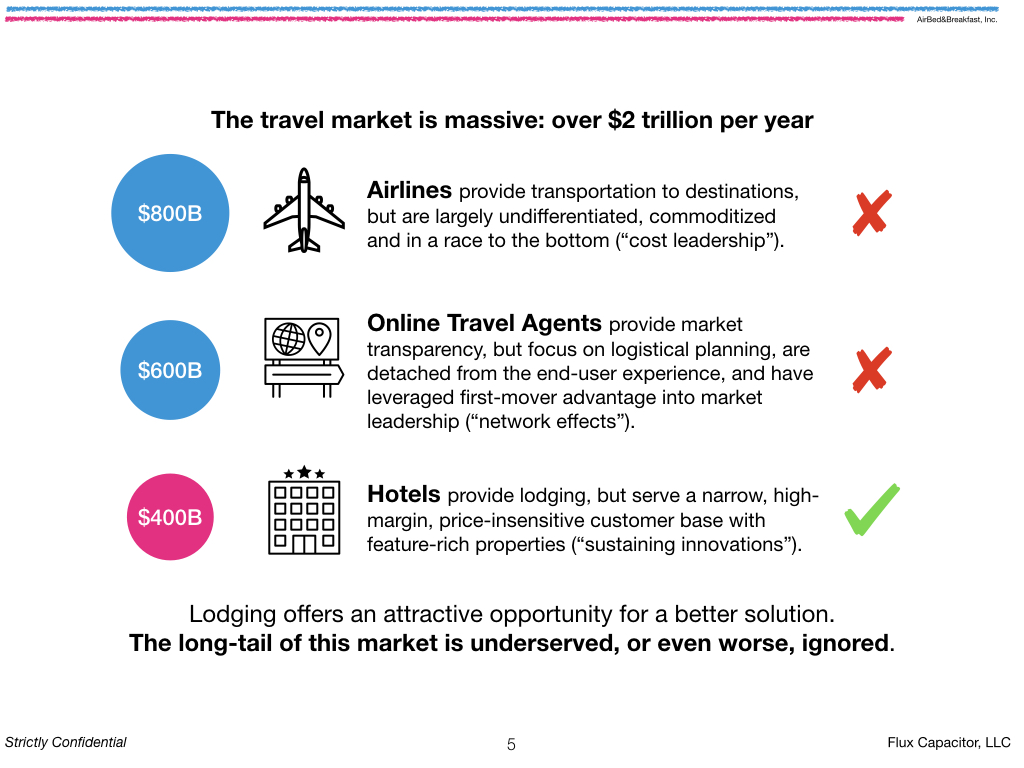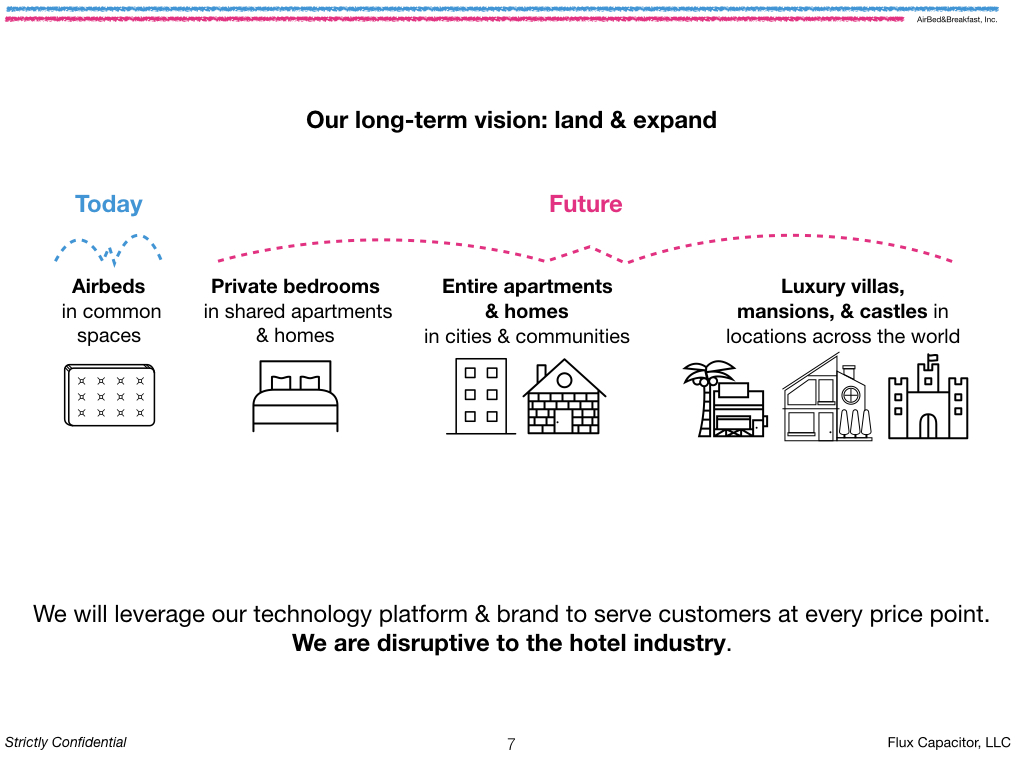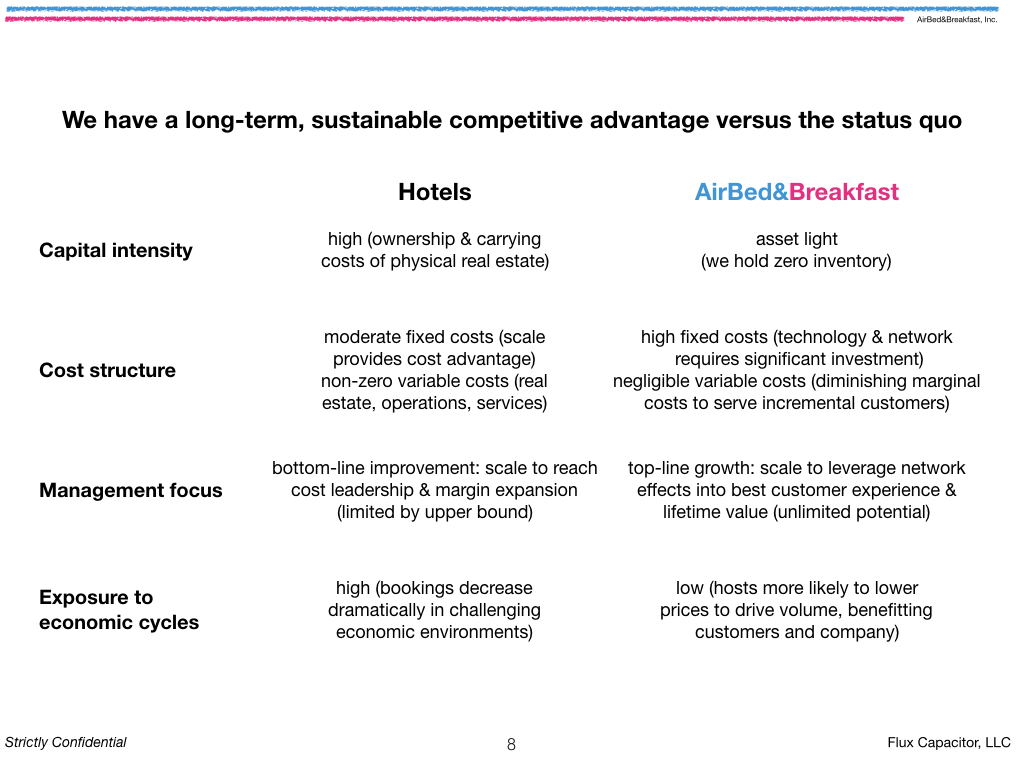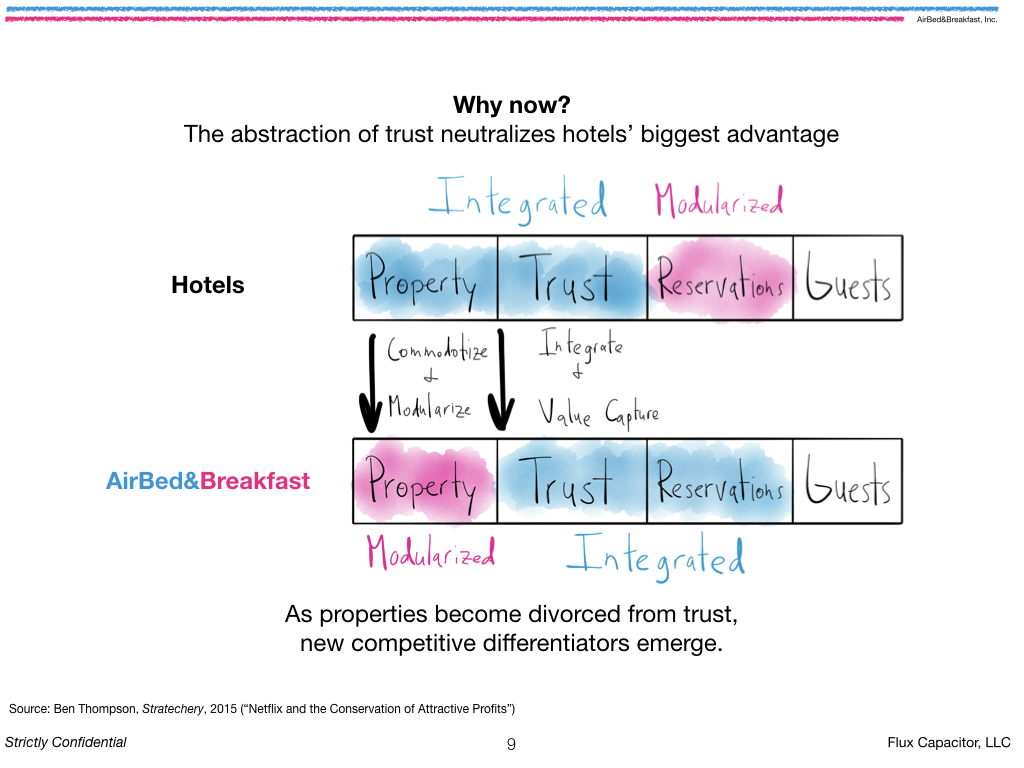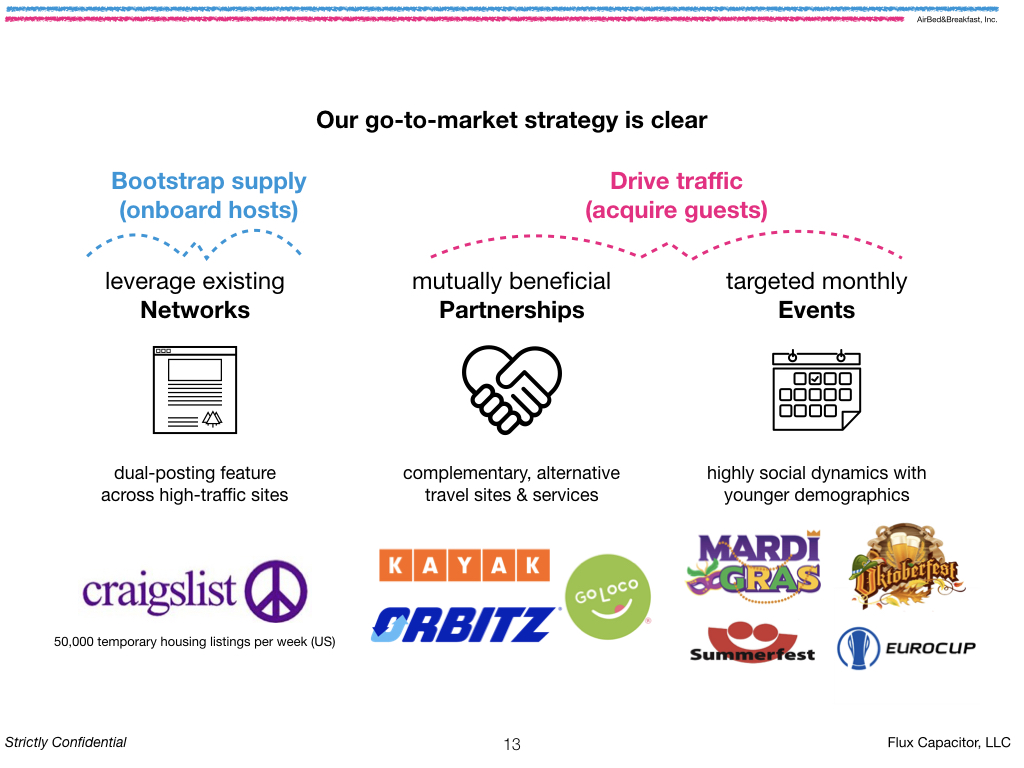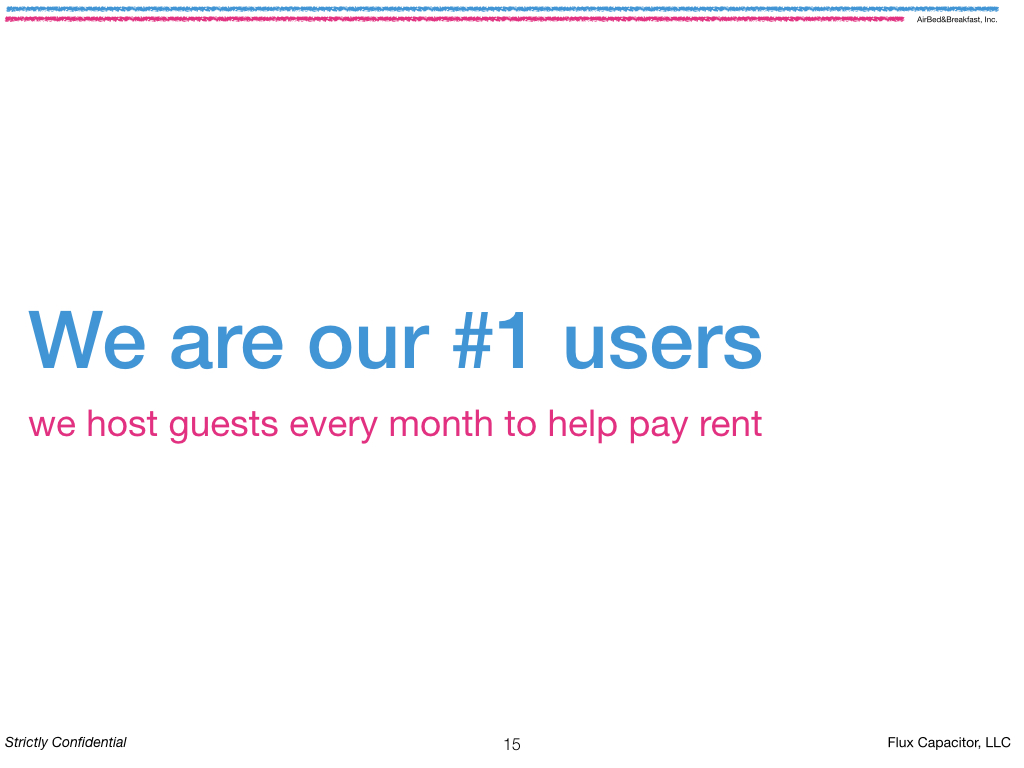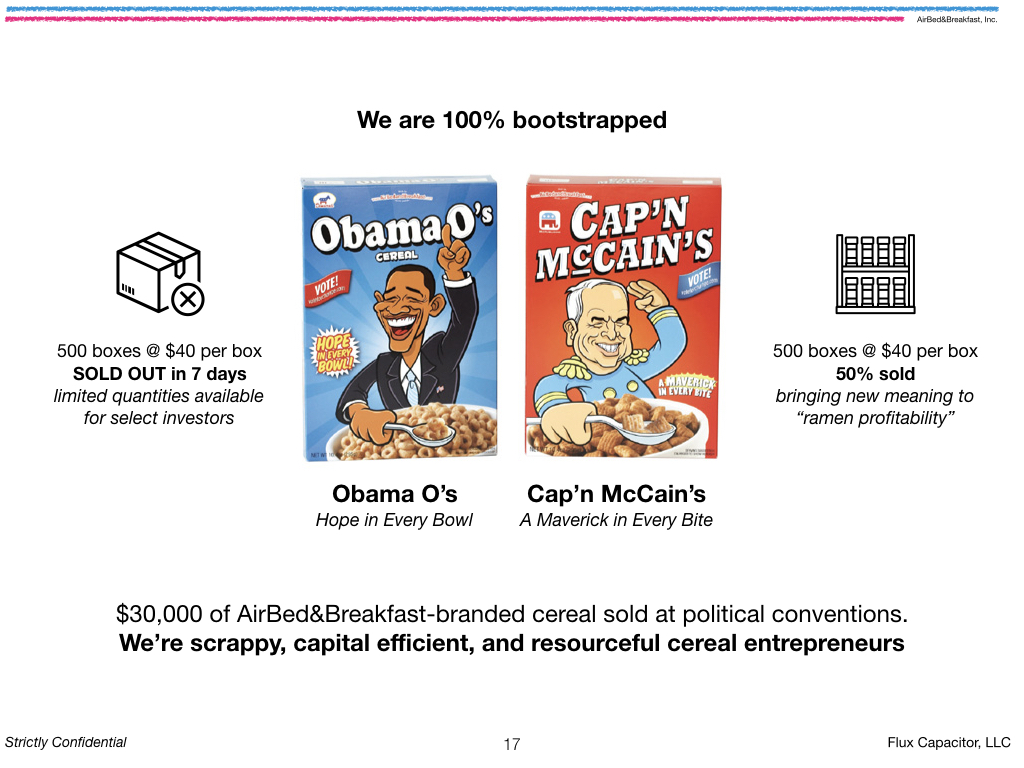Over the weekend, Airbnb co-founder & CEO Brian Chesky celebrated the company’s ten-year anniversary since launch with the following tweet:
Airbnb’s story from a nascent idea to global travel behemoth is inspiring and well-chronicled. Chesky and his co-founders Joe Gebbia and Nathan Blecharczyk’s ability to navigate early challenges is a testament of founders willing their company into existence and relevance.
Perhaps no example illustrates this best other than the fact that Airbnb (fka AirBed&Breakfast) failed to secure a $150,000 investment in 2008 that would have valued the company at a modest $1.5 million. Today, the privately-held company is valued at $31 billion and will be ready for an IPO next year.
So why did investors miss this? It’s almost impossible to know for sure without speaking to the investors who passed, but Chesky offered a humble perspective:
“The investors that rejected us were smart people, and I am sure we didn’t look very impressive at the time.”
At the behest of advisor Michael Seibel, Chesky had created a seed investor deck to circulate across the aforementioned investors. Flux decided to analyze the original Airbnb deck and redesign it to craft a more compelling, robust narrative.
If there is one takeaway from this post, let it be this: you do not need a good deck in order to become an amazing company. On one hand, it’s unclear if the original deck was even a deterrent in the investment decision. And on the other hand, one could argue that Airbnb’s initial struggles to raise seed capital is what led it to participate in Y Combinator, where they did things that didn’t scale and focused on understanding their customers and unique value proposition.
That said, we believe the original deck presents areas of improvement that could have potentially helped the Airbnb founders more efficiently & convincingly communicate the story and opportunity to investors. This is a humble attempt at that precisely.
Note that we will take the perspective of redesigning this as if the year is 2008, when the founders initially created it. We will do our best to reduce hindsight bias as we adjust the narrative, aiming to work with the same set of information we presume the founders had access to at the time. Also note that data points used in the redesign are placeholders and are meant to be illustrative.
If there are any questions/comments/thoughts, please reach out.

